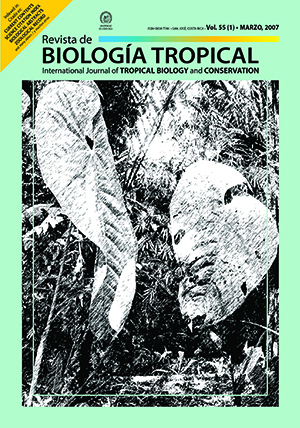Abstract
The taxonomic location of the Onychophora has been controversial because of their phenotypic and genotypic characteristics, related to both annelids and arthropods. We analyzed the ultrastructure of the neurons and their synapses in the cephalic ganglion of a poorly known invertebrate, the velvet worm Peripatus sedgwicki, from the mountainous region of El Valle, Mérida, Venezuela. Cephalic ganglia were dissected, fixed and processed for transmission electron microscopy. The animal has a high degree of neurobiological development, as evidenced by the presence of asymmetric (excitatory) and symmetric (inhibitory) synapses, as well as the existence of glial cell processes in a wide neuropile zone. The postsynaptic terminals were seen to contain subsynaptic cisterns formed by membranes of smooth endoplasmic reticulum beneath the postsynaptic density, whereas the presynaptic terminal showed numerous electron transparent synaptic vesicles. From the neurophylogenetic perspectives, the ultrastructural characteristics of the central nervous tissue of the Onychophora show important evolutionary acquirements, such as the presence of both excitatory and inhibitory synapses, indicating functional synaptic transmission, and the appearance of mature glial cells.##plugins.facebook.comentarios##

This work is licensed under a Creative Commons Attribution 4.0 International License.
Copyright (c) 2007 Revista de Biología Tropical
Downloads
Download data is not yet available.






